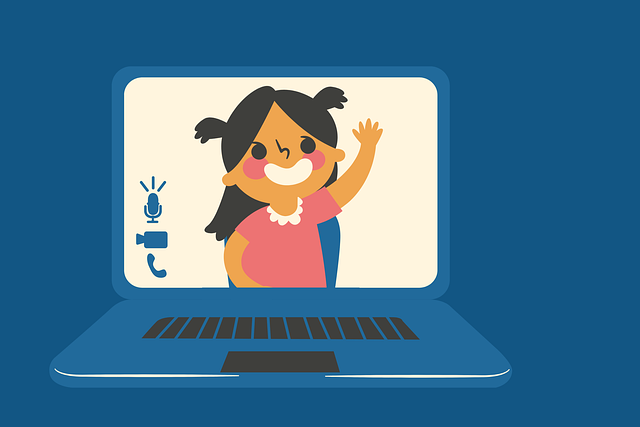Digital counseling has transformed mental health care by offering convenient, accessible virtual therapy sessions from home through video conferencing, chat platforms, or apps. This innovative approach breaks geographical barriers, accommodates diverse individuals with disabilities or time constraints, and provides a cost-effective alternative. The COVID-19 pandemic accelerated this trend, destigmatizing therapy and expanding access to mental health services. Successful remote counseling requires a distraction-free environment, reliable internet, and professional practices to ensure optimal communication and focus. Virtual sessions offer secure messaging, digital assessments, and interactive tools for personalized treatment. While accessibility grows, ethical considerations around privacy and confidentiality are crucial. Strategic approaches, such as interactive tools, clear expectations, and security measures, overcome challenges. Future advancements in technology promise even more accessible and effective mental health support through virtual therapy sessions. Choosing the right online counseling platform involves aligning needs with qualified therapists, leveraging filters, verifying credentials, and considering client reviews.
In today’s digital era, access to mental health services has evolved dramatically with the rise of online counseling. This article explores digital counseling for individuals through various facets, including understanding virtual therapy sessions, the benefits and challenges, ethical considerations, and future prospects. We’ll delve into setting up successful remote counseling, therapeutic tools, and finding qualified online counselors. Discover how virtual therapy sessions are transforming mental healthcare accessibility.
Understanding Digital Counseling and Virtual Therapy Sessions

Digital counseling, or online therapy, has emerged as a game-changer in the mental health landscape, offering individuals convenient and accessible support from the comfort of their homes. This innovative approach involves utilizing digital platforms to facilitate therapeutic interactions between clients and counselors. Virtual therapy sessions provide a safe and confidential space for individuals to explore their emotions, work through personal challenges, and improve their overall well-being.
Through video conferencing tools, chat platforms, or mobile applications, clients can connect with licensed therapists for one-on-one consultations. These virtual sessions mimic traditional in-person counseling by creating an intimate environment where clients can share their thoughts and experiences. The flexibility of digital counseling allows individuals who may face barriers such as geographical locations, physical disabilities, or time constraints to access much-needed mental health services. Moreover, it offers a cost-effective alternative, making professional support more accessible to a diverse range of people.
The Rise of Online Mental Health Services

In recent years, the digital landscape has witnessed a significant shift in how individuals access mental health services, giving rise to the popularity of online counseling and virtual therapy sessions. This evolution is largely driven by technological advancements and changing societal norms. The convenience of accessing mental health professionals from the comfort of one’s home has made these services more accessible than ever before. With the COVID-19 pandemic further accelerating this trend, many individuals who might have previously been hesitant to seek help due to time constraints or geographical barriers now have easy access to virtual therapy sessions.
The integration of digital technology into mental health care offers numerous advantages, such as increased flexibility for both clients and therapists, reduced wait times, and cost-effectiveness. Moreover, online counseling platforms often provide a safe and secure environment, utilizing encryption and privacy measures to protect sensitive information. This accessibility has not only improved the reach of mental health services but also contributed to destigmatizing therapy, encouraging more people to prioritize their well-being.
Benefits of Virtual Therapy for Individuals

Virtual therapy sessions offer a range of benefits that can significantly enhance mental health support for individuals. One of the key advantages is accessibility; people from diverse geographical locations can easily connect with therapists, eliminating barriers such as physical distance and transportation challenges. This inclusivity ensures that counseling services are available to those who might otherwise struggle to access in-person therapy.
Additionally, virtual sessions provide a comfortable and flexible environment for clients. The convenience of attending therapy from the comfort of home or work can reduce anxiety associated with traditional face-to-face meetings. Furthermore, individuals often find it easier to open up and share personal experiences virtually, fostering a deeper level of trust and engagement in their therapeutic journey.
Setting Up for Successful Remote Counseling Sessions

Setting up for successful remote counseling sessions involves creating a comfortable and distraction-free environment at home. This means ensuring good internet connectivity, using reliable video conferencing tools like Zoom or Skype, and optimizing audio quality to facilitate clear communication. A quiet, private space with minimal background noise is ideal for maintaining focus during sessions.
In terms of visual aids, professionals might utilize digital tools such as shared screens for presentations or demonstrations. It’s essential to test technology beforehand to avoid any last-minute glitches. Additionally, counselors should dress professionally and maintain a structured routine to create a sense of normalcy, mirroring in-person therapy sessions while adapting to the virtual therapy sessions format.
Therapeutic Tools in Digital Counseling

In the realm of digital counseling, a variety of therapeutic tools have emerged to facilitate effective treatment in virtual therapy sessions. One prominent tool is video conferencing, which allows therapists and clients to interact face-to-face, fostering a sense of connection despite physical distance. Through this platform, individuals can receive counseling services from the comfort of their homes, promoting accessibility and convenience. Additionally, online platforms often incorporate secure messaging systems, enabling clients to communicate with their therapists between sessions for immediate support or to reflect on insights gained.
Another powerful tool is the use of digital assessments and surveys. These resources allow counselors to gather valuable information about a client’s mental health status, preferences, and treatment goals. With this data, therapists can tailor their approach, ensuring more personalized and targeted virtual therapy sessions. Moreover, digital platforms may offer interactive features like mood trackers, meditation guides, or cognitive-behavioral exercises, empowering clients to actively engage in their healing process between live sessions.
Ethical Considerations and Privacy in Virtual Therapy

The rise of digital counseling and virtual therapy sessions has brought about significant benefits, making mental health services more accessible and convenient for many individuals. However, it also introduces unique ethical considerations that must be addressed to ensure client privacy and confidentiality. As therapists conduct sessions over secure video conferencing platforms, protecting sensitive information is paramount. This includes encrypting data transmission, ensuring the virtual therapy environment is free from unauthorized access, and establishing clear guidelines for sharing client records.
Therapists have a professional responsibility to maintain strict confidentiality, even in the digital realm. They must educate clients on privacy measures, obtain informed consent, and ensure that all interactions are secure. With proper protocols in place, virtual therapy sessions can provide a safe and supportive space for individuals seeking mental health support, fostering trust and encouraging open communication.
Overcoming Challenges: Common Issues and Solutions

Overcoming Challenges in Digital Counseling: Common Issues and Solutions
One of the primary challenges in digital counseling is bridging the gap between virtual and in-person connections. However, therapists can enhance engagement through interactive tools like video conferencing, allowing for real-time communication and a sense of presence. Additionally, setting clear expectations and establishing a structured routine during virtual therapy sessions fosters trust and comfort.
Another common issue is technical difficulties that can disrupt the flow of counseling. Reliable internet connectivity, up-to-date software, and backup plans for potential glitches are essential. Therapists should also ensure client privacy and security by using secure video conferencing platforms with encryption protocols. These measures not only ensure smooth virtual therapy sessions but also build confidence in digital counseling as a valid and effective approach.
Future Prospects of Digital Counseling for Individuals

The future of digital counseling looks promising, with virtual therapy sessions set to play an increasingly significant role in mental health support. As technology advances, we can expect more sophisticated and accessible platforms that facilitate effective therapeutic interactions. The convenience of online sessions allows individuals who might face barriers like geographical constraints or social anxiety to access counseling from the comfort of their homes. This shift also opens up opportunities for diverse populations to receive care, potentially reducing wait times and increasing availability.
Additionally, integrating artificial intelligence and machine learning in digital counseling can personalize treatment plans based on individual needs. These tools could analyze patterns in a patient’s interactions to provide tailored interventions, enhancing the overall therapeutic experience. With continuous innovations, virtual therapy sessions are poised to become a game-changer, making mental health services more inclusive and efficient in the digital age.
Resources and Finding a Qualified Online Counselor

In today’s digital era, virtual therapy sessions have become increasingly accessible, offering individuals a convenient and discrete way to access mental health support. When exploring online counseling, it’s crucial to consider your specific needs and preferences when searching for a qualified counselor. Reputable platforms often provide a range of resources to help you make an informed decision, including detailed profiles of therapists, client testimonials, and specialty areas.
These platforms typically allow you to filter potential counselors based on factors like insurance coverage, language proficiency, and therapeutic approaches. Additionally, many websites offer free initial consultations or trials to ensure a good fit. Remember to verify the credentials and licensing of your chosen counselor to guarantee the highest quality of care during virtual therapy sessions.
